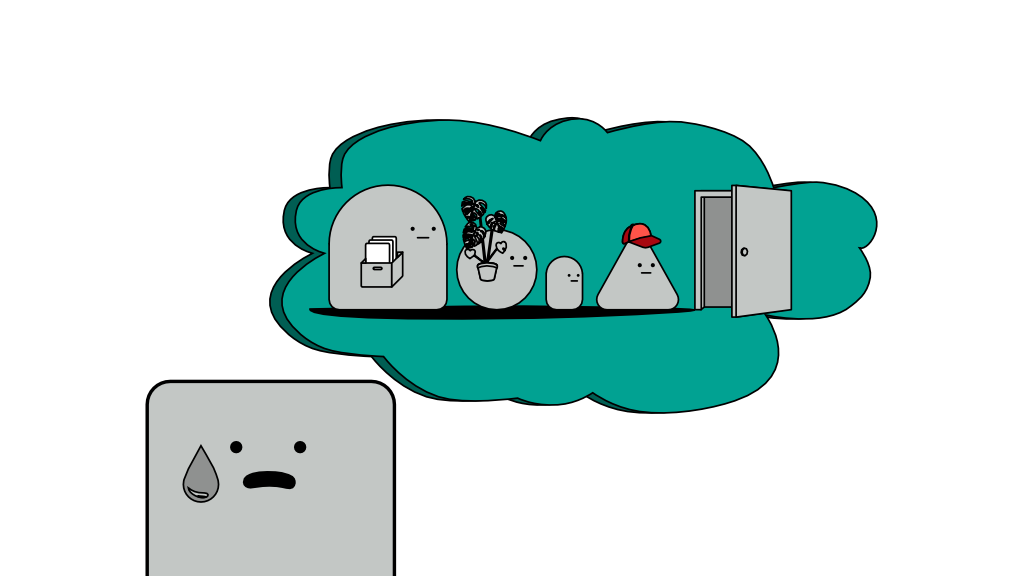Five signs your employee will resign soon

Hear it straight from the horse’s mouth
It is very important to conduct an 'exit Interview' with the candidate prior to their departure (or possibly after). You owe it to yourself to receive a genuine feedback that would help you understand the reason behind the resignation. In my experience, most employees tend to hand in their resignation when it’s too late to fix their problem as they’ve probably already signed an offer someplace else.
When you receive a resignation, avoid saying things like “I was about to promote you in 2 months” or “I’ve been thinking about giving you an increment for a while now”. Such statements will only disappoint everyone further as the thought process that follows would be something like “We haven’t spoken for a while now and all of a sudden my wellbeing is your concern?”. Instead, try channeling the conversation towards understanding the motive to leave so you can get on top of those issues and hopefully prevent others from following in the same footsteps.
In my experience, there are always telltale signs or red flags that a good manager can spot which may be indicators of employee dissatisfaction in the workplace and an impending resignation, or perhaps general indicators to call for a one-on-one session. So without further ado, let’s dive into the core of this article.
Diminished visibility
This refers to how visible an employee is within the organisation. Think of your employee during his first month on the job. How proactive was he? How competitive was he? Then compare your observations between now and then.
Becoming passive, for someone who used to be very visible and loud, is a sign that the person is facing challenges in the workplace, and somehow they took a toll on his motivation to continue trying.
This is generally one of the first signs you would notice, and if gone unaddressed it can escalate into a problem that’s just too big to fix. Becoming less visible may not necessarily be a sign of an impending resignation but it is a sign of dissatisfaction and lack of motivation. It could be attributed to the nature of a project or difficult team members or even unmet expectations.
Don’t turn a blind eye on this. Sometimes, you can solve this issue by simply having a chat with the employee and showing him that his contributions are valuable to the team. Everyone wants to feel important and relevant so make sure to provide that affirmation.
More agreeable and little contribution
I remember a time when I personally stopped contributing to any discussion that involved a particular colleague who I used to work with. Because of his persistent condescending attitude and unwillingness to listen to opposing ideas that could have benefitted the organisation, over time, I was left to feel defeated.
Having someone in the way of achieving your goals can be very frustrating and it’s even worse if the person leverages his position or power to be in command of a situation without carefully examining the root cause or pain points of others. It comes as no surprise that dealing with toxic colleagues is one of the main reasons why employees choose to leave.
Some individuals are naturally more agreeable than others and it’s important to know the difference. Thus, I encourage you to get to know your team members and analyse their behaviour over time. It’s the behavioural change that matters and not the behaviour in itself.
If you start noticing a change in behavior in your employee - becoming more agreeable and less outspoken than usual, with almost no contribution of ideas at all - they may be buying some time before they land their next job opportunity. You may want to start thinking of shuffling things around to boost motivation within your team.
Watch out for leave patterns
The following can be tricky and may lead to trust issues if not managed well. Everyone is different in how they choose to spend their paid leave days. You have to observe their pattern and the only way to do this is by staying close to the ground. Some may choose to save their leave days throughout the year and take a 1 month year-end holiday while some choose to spread them across the year. There are also others like me, who do not plan for their leave days at all but choose to take them when absolutely necessary.
In any case, when your employee starts requesting for multiple emergency leaves on short notice or perhaps providing a lousy reason like wanting to pick up a parcel that’s being delivered or caring for a grandmother that’s known to have passed for one too many times, it could mean that this employee is taking the time off to attend a job interview somewhere that he managed to score using your internet connection.
When such situations happen, don’t go hammering employees on loyalty and trust as they would only resent you. Instead, focus on listening to their concerns, their motivation and what makes them happy. Providing them the assurance that their struggles are heard and will be actioned upon is often what makes employees happy to stay.
No interest in wanting to impress
Not showing interest in the company’s goals, wanting to make things better and finding simple joy in daily work are all signs that your employee’s interests no longer resonate with yours and is likely to leave at any point even if presented with a slightly better opportunity.
A good employee will typically tend to compete and impress by taking pride in his or her work. When they stop trying to make their slides look good or no longer writing emails and reports well, stop being on time or always act on things the very last minute, it is sign that they’ve stopped believing in the company’s vision and lost the meaning in their work.
Minimum acceptable effort
Everyone is different in the way they do work. Many employees, especially juniors, require explicit instructions to perform their tasks and this point does not refer to such instances. It refers to the instance where an employee starts negotiating the amount of work he’s willing to do with his supervisor. This is a telltale sign that he does not feel rewarded for good work which is a strong motivation to quit.
This is a clear indication that the person no longer shares the same goals with you or the company. What this means is that the job is now just a way to be financially secure and it makes sense to put in the minimum amount of effort required to maintain the job or salary. To avoid that, you can try being more transparent with your team about the goals and motivations behind the tasks and explain how their work translates to value and eventually revenue, bonuses and promotions.
Final thoughts
If you know your employees well enough and understand their behaviors or how they change over time, you’d be able to detect early signs of resignations.
Drastic changes in behavior is what you should be keeping an eye on. Highly motivated individuals becoming hardly motivated, or loud team members becoming timid or apathetic are some examples to illustrate such drastic changes in behavior. These are usually signs of job dissatisfaction and the feeling of not being valued.
Finally, keep track of their performance and get to know their individual style of working. When someone who always writes articulate emails starts sending poorly written emails, or when they start questioning the value of their tasks and negotiate what they can and can’t do, these indicate they no longer believe in your goals and are not driven by the success or failure of the company.
In such scenarios, the best way to avoid these challenges and perhaps even convince that one employee to stay, is to be open with all your employees. Talk to them, take an interest in their well being, and listen to their feedback and challenges. Often, employees resign because they do not feel heard and valued.


